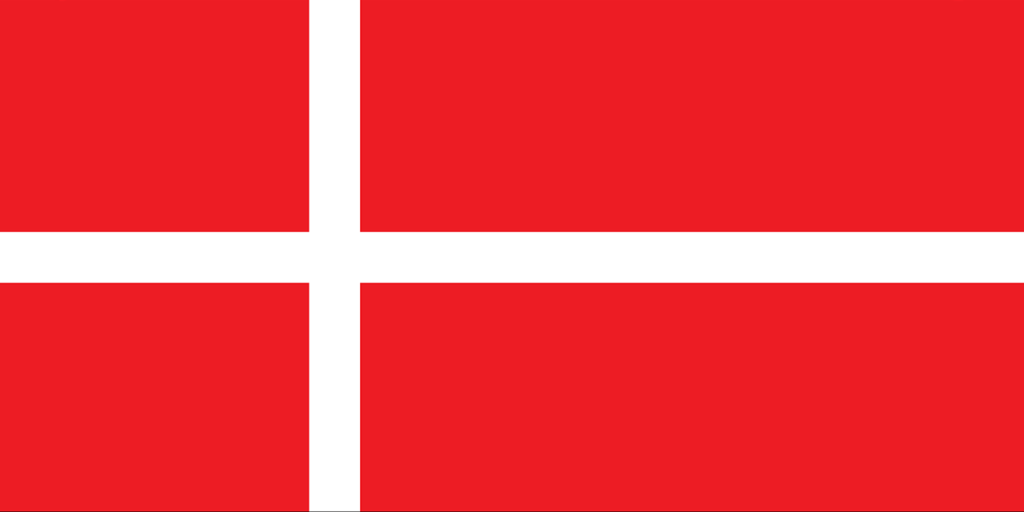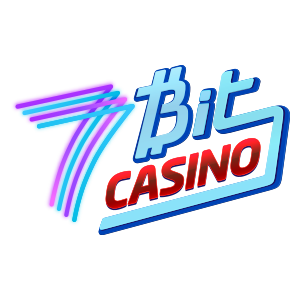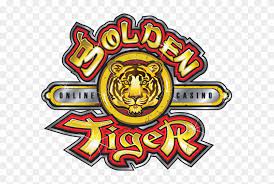
Danish Gambling Authority
Table of contents
Gambling Regulations for Online Casinos in Denmark
When you look at European countries, those in Scandinavia tend to be happier than the rest of the continent. Countries like Norway, Sweden and Denmark consistently rate high on the happiness index, thanks to high wages, excellent quality of life, and little conflict.
In Denmark, online gambling can be added to that list since it is currently legal in the country. However, it wasn't always that way. Although Denmark is much more open to the idea of online gaming, it's relatively late to the party, having passed legislation about it in 2012.
So, with that in mind, let's take a closer look at the gambling regulations for online casinos in Denmark.
A Brief History of Online Gambling in Denmark
Oddly enough, it's hard to find out much information about the gambling scene before 1948. Presumably, Denmark, like other countries in the region, started betting well before the 20th century. The Romans were notorious for bringing dice and card games wherever they went, and betting spread throughout the continent during the 17th, 18th, and 19th centuries.
For Denmark specifically, however, the primary data goes back to the formation of Danske Spil. This is the name of the national lottery, which was first created in 1948. The first official game that Danske Spil hosted was on May 8th, 1949.
Since 1948, Danske Spil was literally the only game in town. As a state-run entity, the government didn't want outside operators to horn in on their territory. As long as gambling stayed in-person, it was easy to boot everyone else out.
Then, of course, came the internet. The first online gambling sites popped up in the mid-90s and spread like wildfire. At the time, the only regulatory authority that recognized online casinos was based in Antigua and Barbuda.
It didn't take long for other countries and regulators to take notice, and many others popped up in the late 90s and early 2000s. Throughout this time, Denmark was more than willing to keep its monopoly. To help ensure that Danske Spil remained the only betting operator in the country, all other forms of online gambling were banned, and the government refused to issue licenses to outsiders.
Unfortunately, it's much easier to enforce the rules when it comes to betting parlors, home games, and bootleg casinos. It's much harder to police the internet, particularly when Virtual Private Networks (VPNs) became widespread. So, even though the government tried to outlaw online gaming on “offshore” sites, Danes didn't pay much attention to the law and played anyway. Many online casinos even catered to the Danish people, offering games and customer support in their native language.
By 2010, the Danish government wised up and realized how much money they were leaving on the table by prohibiting unregulated gambling. Legislators came together to figure out a new law that would allow the government to liberalize the market while raking in tax revenue. The result was the Danish Gambling Act of 2010.
Since then, online gambling has exploded in Denmark, with tons of casinos applying for and receiving licenses. Interestingly, Danske Spil has actually seen a revenue increase, probably because the market is much more open and relaxed, so more Danes are willing to play without fear of retribution. That said, part of Danske Spil's record numbers is also because it's the only legal lottery operator in the country. While foreign casinos and sports betting sites can apply for a license in Denmark, no one else is allowed to run a lottery.
Here are some dates to pay attention to in the history of gambling in Denmark
- 1902 – Casino Marienlyst expands its operations and adds a casino. Before, it was just a health spa and hotel.
- 1943 – Dansk Tipstjeneste is founded as the country's first betting purveyor.
- 1948 – Dansk Tipstjeneste changes its name to Danske Spil, and the government reduces its stake to just 80 percent. The remaining profits were split between the Federation of Sports and the Association of Gymnastics and Sports.
- 1990 – The Danish Gambling Act allows other casinos to open under strict regulation.
- 2012 – A new Danish Gambling Act goes into effect, allowing foreign online casino operators to apply for licenses through the Danish Gambling Authority.
Is Online Gambling Legal in Denmark?
Yes, all forms of online gambling are legal and regulated in Denmark. The country is considered a “white” market because of its liberal laws and open legality. Black market countries are those where online gambling is prohibited, and gray market countries are those where gambling isn't strictly illegal, but it's not regulated either.
Denmark classifies four types of gambling:
- Betting – Where the wager is dependent on the outcome of an event (i.e., horse racing or sports).
- Combination – Where the outcome is based on a mix of skill and chance (i.e., casino games).
- Lottery: Where the outcome is entirely based on chance.
- Social/Skill Games – Where the outcome is based on skills (i.e., chess games).
The top three classes require licenses to operate, but Lotteries are still a state-run monopoly by Danske Spil. The company runs various lottery games, including instant win games, Keno lottery, and weekly drawings. All social games are unlicensed as long as they require skill or don't have a stake or winnings.
Gambling Regulations for Online Casinos Denmark
The primary legislation that affects online gambling in Denmark is the Danish Gambling Act of 2010. Although it was passed in 2010, it didn't take effect until January 1st, 2012. Here is a more detailed overview of the act and how it works.
At the time, the government sought to revise its gambling rules, specifically those related to taxation and the distribution of profits. The act was proposed by both the Minister of Culture and the Minister of Finance. The law's secondary goal was to liberalize the market to allow for outside operators to set up shop within the country.
After deliberation, the primary components of the Gambling Act were as follows:
- Liberalization – The government would allow foreign companies to get licensed for online sports betting and casinos.
- Monopoly – Lotteries and bets on horse, dog, and pigeon racing would all be exclusive to the state-run company Danske Spil.
- Protection – The point of licensing foreign-based casinos is to ensure a fair and competitive market while protecting players from acts of fraud or criminal behavior. The government also sought to protect vulnerable populations, such as the elderly and children, from being exploited by unscrupulous gambling activities.
- Taxation – Denmark has one of the highest tax rates on online casinos in the world. Operators have to pay up to 20 percent of their total revenue every month. Most other countries only tax earnings from games, but Denmark takes its cut off the top.
- Punishment – Illegal or unlicensed online casinos are subject to steep fines and IP banning.
The act also expanded the Danish Gambling Authority's jurisdiction (DGA), but we'll learn more about them in the next section.
Advertising was also spelled out in the act, and the government issued new guidelines for both land-based and online casinos. The goal was to limit gambling-related marketing to curb an explosion of problem gamblers and addicts throughout the country. The policies surrounding marketing include:
- All ads must be targeted to individuals 18 years or older.
- Ads must not make it seem like the odds of winning are higher than the reality.
- Ads must focus on gambling as a form of entertainment, not for investment purposes.
- Ads shall not imply that celebrities or athletes succeeded because of gambling.
- Casinos are allowed to promote bonuses, but they must provide a complete list of rules and stipulations when presenting the offer.
In 2018, the Act was further amended to allow foreign operators to offer bets on horse, dog, and pigeon racing, effectively ending Danske Spil's monopoly. While the company would still be the largest purveyor of animal-based betting, other sites can now offer it as well. Bingo games were also liberalized and can be included in a regular online gambling license.
Gambling Authorities for Online Gaming in Denmark
The Danish Gambling Authority is the only licensing and regulatory body within the country. However, since Danes can still gamble at offshore sites, other foreign-based commissions may oversee those operations. Here is a rundown of the various organizations that manage online gaming in Denmark.
Danish Gambling Authority (DGA)
The DGA is an offshoot of the Ministry of Taxation. This agency is responsible for issuing licenses for both for-profit and nonprofit gambling organizations and events. The DGA is also responsible for monitoring all licensed websites and penalizing any that violate the rules of the Gambling Act of 2010.
Even though online gaming falls under the DGA's jurisdiction, the agency was actually formed in 2000. Denmark has different laws for casinos and slot machines, and the DGA was in charge of monitoring those machines in other approved venues, such as bars and restaurants.
The Danish Gambling Authority also oversaw casino operations on the seven land-based casinos and managed licensing for charity events and nonprofit organizations. After the Gambling Act went into effect in 2012, the DGA split off from the Ministry of Taxation and became an independent regulator with its own director. The DGA is still part of the Ministry but has its own directives and staff.
Currently, the DGA has five different divisions:
- Betting, Online Casino, and Market Analysis – This division handles all online casino licenses and monitoring. This group also watches the market to see how different gambling elements are trending up or down.
- Monopoly and Land-Based Compliance – This department handles all land-based casinos and oversees Danske Spil's operation, the state monopoly on lottery games.
- Finance, Policy, and Administration – This division covers the financial aspect of gambling, including fines, taxes, and other fees. Policy changes may originate here as well.
- Slot Machines and Systems – All slot machine licenses outside of a casino are passed through here.
- Responsible Gambling and Charity Lotteries – This division provides gambling addiction information and resources and oversees licenses for charity events and organizations.
European Gaming and Betting Association
Although this organization provides guidelines and best practices for online gambling operators, it doesn't issue licenses. Instead, the EGBA acts as an oversight committee, ensuring that all licensing regulators within the EU act responsibly. Casino operators can join the EGBA as a member company, which gives confidence to players and other regulatory authorities.
Malta Gaming Authority
The MGA is one of the oldest gambling commissions that specializes in online casinos. Founded in 2001, the MGA is one of the most well-respected authorities in the region. It's hard to get a gambling license from the MGA, so casinos with one are considered better than those without.
Gibraltar Regulatory Authority
Another small country that has lots of online casinos is Gibraltar. Technically, this area is a British Dependency, but it still creates its own laws. Over 30 websites are based here, many of them serving the EU and other parts of the world.
Gambling Addiction Resources in Denmark
Since gambling is well-regulated within Denmark, the country offers plenty of resources for problem gamblers. As we discussed above, there is a whole division of the Danish Gambling Authority dedicated to these resources. Those with a gambling addiction can find help with one of these options:
- ROFUS – The DGA has a self-exclusion program that allows players to block online casino websites. You can sign up here.
- Gambling Addiction Treatment Centers – Denmark has plenty of clinics and treatment facilities that help with problem gambling. You can find a complete list on the DGA's website here.
- Gamblers Anonymous – The GA offers group meetings and therapy sessions to help individuals confront and overcome their addiction. Locate meeting times and sites here.







